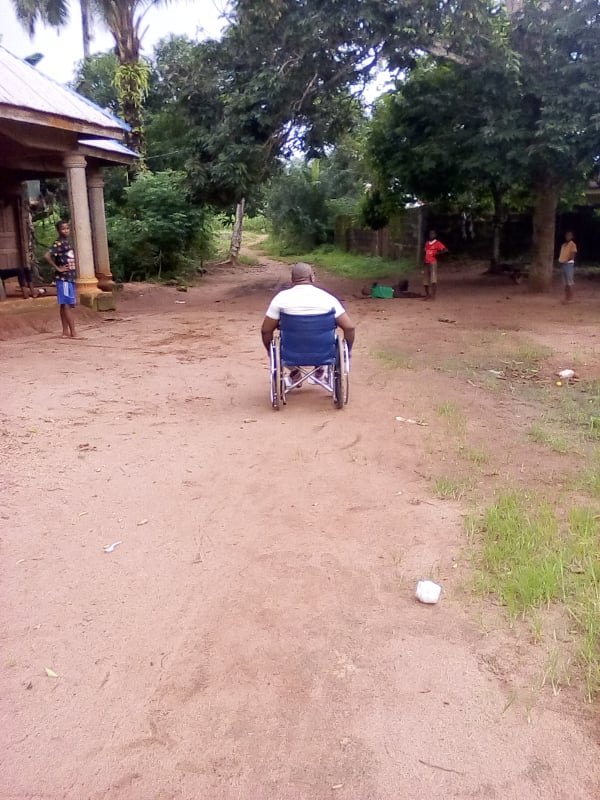
Dry season is usually a period of little rain or no rain for a period of five to six months, Usually, from October to March. During this time, the sun is strong, and temperature is usually very hot.
Living with SCI in Nigeria and surviving dry season is difficult. During the dry season, there’s a high chance of someone with SCI developing numerous pressure sores all over his or her body. Whenever the season comes, it’s is very hard for me. What makes it so difficult is that I am fighting an existing pressure sore. This means that I will be often in the bed dealing with heat. The lack of reliable electrical power for running a cooling fan means that I can develop even more pressure sores. This type of heat makes healing very slow.
I had faced numerous health challenges during past dry seasons. The constant shortage and poor quality of my drinking water. Getting water either for drinking or for any other use is usually hard to accomplish. Access to water is critical for maintaining a good hygiene, drinking, and cooking.
The dry season impacts air quality, general sanitation, and my personal hygiene. The air is always hot and polluted with dust. My breathing is more labored. Usually at night, at some point, I will suffer a nasal congestion. Usually, I will be awake at night to not sleeping and feeling restless during the day since my fan will not have power to run.
The only solution I have seen people with SCI adapting to is having an outside bed. When is very hot inside during the day or night, one can go and lay on his outdoor bed either under a tree where it is a little cooler. Another solution is getting a solar powered battery to power up the fan. Since the sun is so strong, the solar battery will charge well enough to power the fan all day and night.
While the rainy season keeps me inside due to the flooding, mud, and potholes filled with water, the dry season keeps me outside grasping for air. But do I find that this is the best time for me to actively wheel around for longer distances enabling me to stay active.